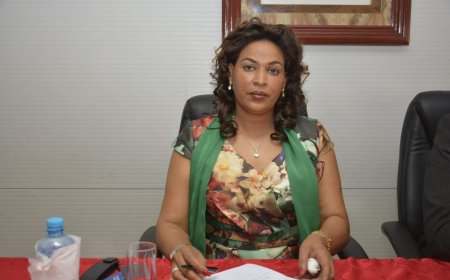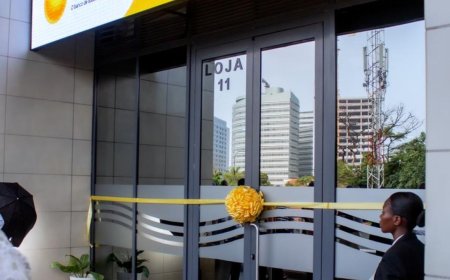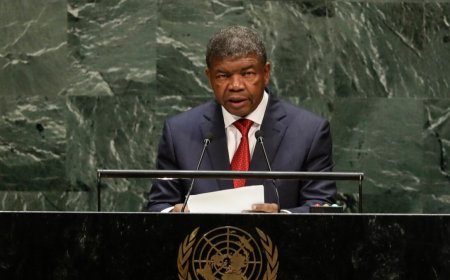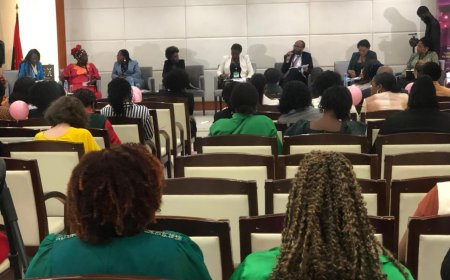Two years after authorization by the BNA, commercial banks only released Kz 70.3 billion in housing credit to families.
Created two years ago and presented as the "trump card" for banks to finance the purchase or construction of housing for citizens, the instrument underwent changes last year, but still did not meet the expectations generated at the time of its launch.
A total of just 70.3 billion Kwanzas of housing credit, under Notice 9 of the National Bank of Angola (BNA), was how much the 23 commercial banks operating in Angola released to help families buy houses or land, a mechanism created to boost this segment, according to figures from the central bank.
For now, and as several months have passed since the implementation of the project, experts consider that the amount does not represent the needs of those who still hope to realize their dream of owning their own home.
Created two years ago and presented as the "trump card" for banks to finance the purchase or construction of housing for citizens, the instrument underwent changes last year, but still did not meet the expectations generated at the time of its launch.
"Given the fact that full compliance with the requirements and conditions are associated with exogenous factors, the numbers are not yet as expected, although there are already signs of some improvement in access to housing credit", responded a BNA source, cited by Expansão .
According to the central bank, "since the entry into force of Notice no. 09/2022, of April 6, until April of the current year, housing and construction credits were granted in a global value of around 70, 27 billion Kwanzas.”
Of this amount, a significant part corresponds to credit for home ownership, supported by seven systemic and two non-systemic banks, explains the BNA in response to questions posed by Expansão, although it does not name the banks as these are issues associated with the Information Center and Credit Risk.
Experts consider that the amount of housing credit available in two years is low compared to the market reality.
"These 70.3 billion Kz that the banks made available mean almost nothing to the number of customers looking for financing to purchase or build their homes. This warning from the BNA will almost not resolve the situation, because the banks do not want to take risks and prefer to finance other instruments with more profitability and less risk", considers economist Pedro Silva.
The economist also understands that the conditions of this financing instrument also affect its success. "In a way, the final decision whether or not to grant credit is the responsibility of the banks. And they end up placing a set of demands, even if they do not violate the BNA's warning, which many workers are unable to comply with", considers the analyst.
Given this scenario, the central bank does not rule out the possibility of further changes to the document, after the last ones made in August last year.
"The BNA has adjusted its regulatory instruments to market needs based on economic-social dynamics, which is why it published new regulations on housing and construction credit 16 months after the publication of the initial regulations. However, nothing prevents the even undergo changes whenever it is considered necessary and pertinent", reads the BNA's responses to Expansão on Notice no. 09/2022, of April 6th.
Banking constraints
Difficulties in presenting guarantees to banks continue to be the main obstacle to housing credit, which, combined with the low income of the majority of the population, means that this type of credit has little weight in the financing portfolio of banks that prefer to invest in other safer and more profitable products.
"The banks are asking for guarantees that we can hardly obtain. And salaries are also limited. Few public servants earn enough to get a loan of 100 million Kz", said real estate agent Carlos João.
Two years after authorization by the BNA, commercial banks only released Kz 70.3 billion in housing credit to families
Created two years ago and presented as the "trump card" for banks to finance the purchase or construction of housing for citizens, the instrument underwent changes last year, but still did not meet the expectations generated at the time of its launch.

A total of just 70.3 billion Kwanzas of housing credit, under Notice 9 of the National Bank of Angola (BNA), was how much the 23 commercial banks operating in Angola released to help families buy houses or land, a mechanism created to boost this segment, according to figures from the central bank.
For now, and as several months have passed since the implementation of the project, experts consider that the amount does not represent the needs of those who still hope to realize their dream of owning their own home.
Created two years ago and presented as the "trump card" for banks to finance the purchase or construction of housing for citizens, the instrument underwent changes last year, but still did not meet the expectations generated at the time of its launch.
"Given the fact that full compliance with the requirements and conditions are associated with exogenous factors, the numbers are not yet as expected, although there are already signs of some improvement in access to housing credit", responded a BNA source, cited by Expansão .
According to the central bank, "since the entry into force of Notice no. 09/2022, of April 6, until April of the current year, housing and construction credits were granted in a global value of around 70, 27 billion Kwanzas.”
Of this amount, a significant part corresponds to credit for home ownership, supported by seven systemic and two non-systemic banks, explains the BNA in response to questions posed by Expansão, although it does not name the banks as these are issues associated with the Information Center and Credit Risk.
Experts consider that the amount of housing credit available in two years is low compared to the market reality.
"These 70.3 billion Kz that the banks made available mean almost nothing to the number of customers looking for financing to purchase or build their homes. This warning from the BNA will almost not resolve the situation, because the banks do not want to take risks and prefer to finance other instruments with more profitability and less risk", considers economist Pedro Silva.
The economist also understands that the conditions of this financing instrument also affect its success. "In a way, the final decision whether or not to grant credit is the responsibility of the banks. And they end up placing a set of demands, even if they do not violate the BNA's warning, which many workers are unable to comply with", considers the analyst.
Given this scenario, the central bank does not rule out the possibility of further changes to the document, after the last ones made in August last year.
"The BNA has adjusted its regulatory instruments to market needs based on economic-social dynamics, which is why it published new regulations on housing and construction credit 16 months after the publication of the initial regulations. However, nothing prevents the even undergo changes whenever it is considered necessary and pertinent", reads the BNA's responses to Expansão on Notice no. 09/2022, of April 6th.
Banking constraints
Difficulties in presenting guarantees to banks continue to be the main obstacle to housing credit, which, combined with the low income of the majority of the population, means that this type of credit has little weight in the financing portfolio of banks that prefer to invest in other safer and more profitable products.
"The banks are asking for guarantees that we can hardly obtain. And salaries are also limited. Few public servants earn enough to get a loan of 100 million Kz", said real estate agent Carlos João.
What's Your Reaction?











































